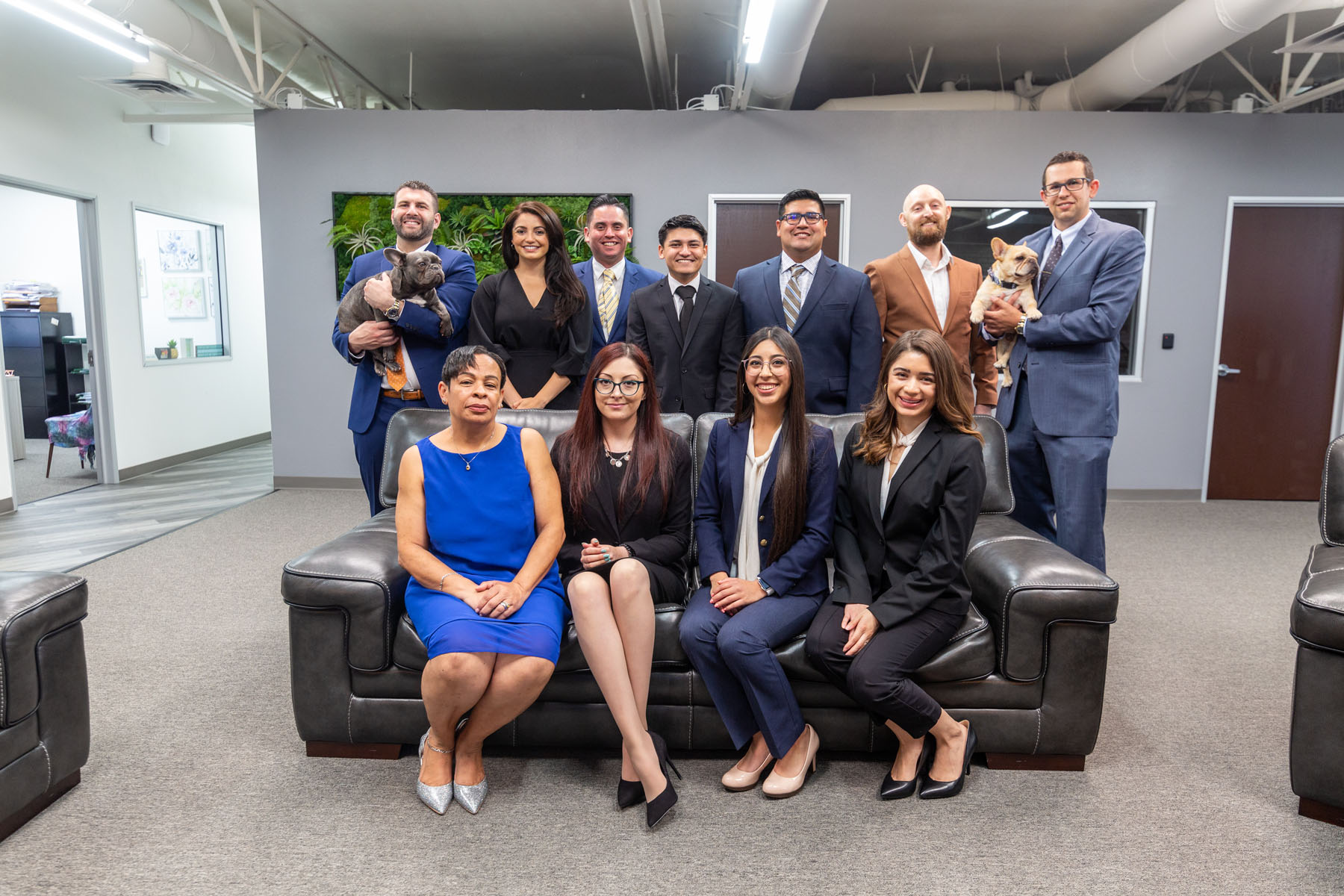It’s funny how people will think nothing of carefully shopping for the perfect pair of shoes but would be willing to go with the first lawyer who agrees to take their personal injury case. Having the right San Diego personal injury attorney can make the difference between a successful outcome and an expensive disappointment and waste of time.
You should absolutely “shop around” when it comes to hiring an attorney, especially in a field like personal injury. After all, this individual will be the professional looking after your legal interests in a very technical and sometimes complicated arena.
Here are a few considerations that can help you find the personal injury lawyer best suited to your case – and to you.
A Few Basics

1. General Practice or Specialist?
General practitioners are great when you want to have one go-to attorney for corporate or personal/family matters. Personal injury is a specialized field that touches on tort law (suing people or other legal entities for damages or injury) and negligence suits, insurance law (especially if your injuries are the result of a car accident), and medical issues (different types of injuries and healing processes).
You definitely want someone who is experienced enough in personal injury law to navigate the different legal principles and concepts, and to deal with the insurance company or defendant, which will definitely have attorneys. This doesn’t necessarily mean you can’t hire someone with a more general practice. Take a look at the areas of law in which your prospective lawyer practices. If they have lots of personal injury law experience, they could still be a good choice. Otherwise, look for someone who only – or predominantly – practices personal injury law.
2. Law Experience
Granted, just because someone is new to the law doesn’t mean they aren’t a good lawyer – or won’t be. Conversely, just because someone has been practicing law for many years doesn’t necessarily mean they are competent. In general, however, you do want to retain a personal injury attorney who has been practicing long enough to be familiar with the technical rules (filing, deadlines, defenses, etc.) and ever changing case law.
3. Trial Experience
Most personal injury cases end up settling, because the time, effort, and cost of running a trial can be onerous. Still, if your attorney is hesitant to take matters to trial, the insurance company or defendant may push for a low ball settlement because they assume that your lawyer’s bark is worse than their bite. If your attorney has a proven track record at trial, you may see more reasonable offers from the other side.
4. Reputation in the Legal Community
There are few other professions in which the saying, “your reputation precedes you”, is more apt. An attorney with a good reputation in court is someone judges have come to trust as able, prepared, respectful, knowledgeable, and reasonable. An attorney with a good reputation among their peers signals that they are ethical, skilled, and trustworthy. Your lawyer’s reputation reflects on you.
If the personal injury attorney you’re thinking of hiring is known to use shady tactics when negotiating, the insurance company – and its lawyer – will be less likely to offer or to agree to a settlement in your favor. If judges don’t trust or like the attorney – even though they’re supposed to remain impartial – they may not be as quick to rule as favorably to you; they are, after all, still human.
5. Fee Arrangement
Most personal injury lawyers and firms charge a contingency fee; that is, they won’t be charging you by the hour, but will take a percentage of the monies you receive upon resolution of the case, be it trial or settlement. The average amount the attorney keeps is about one-third of the sum of money paid to you. Make sure you are find out whether there are other types of “expenses” that will also come out of the winnings.
It’s often easier to tell whether “you get what you pay for” with regular billing and hourly rates, because you can pore over the invoices and assess their reasonableness, but do be wary if the percentage your prospective attorney wants to keep seems too high or too low.
6. Location
Unless there is a particular attorney you want to retain, because of reputation or excellent referral, for example, location may be another helpful parameter. In some cases, different courts and legal personnel in an area have different quirks. A lawyer who is local may have a bit of an upper hand when dealing with other attorneys, judges, and court staff because they are already familiar with everyone.
Another bonus would be not having to travel too far to see your attorney, especially if you have mobility issues as a result of the accident or incident.
Where Do I Start?

If you’ve never hired an attorney, the prospect of finding one may feel daunting. Fortunately, there are some resources that can get you off to a good start in your search:
- Ask your friends and family. We all know someone who has hired a lawyer – but make sure you are talking to someone who has gone through a personal injury case.
- Some websites – such as LegalZoom, Avvo.com, Lawyer.com, Avvo, and LawTrades – offer search engines. Some of them even offer client reviews. Read the reviews, but with a critical eye. Compare reviews over different sites to ensure that you’re getting a more accurate picture. There are also websites intended to assist low-income individuals and families to find lawyers, such as LawHelp.org.
- Every State has its own bar association. Nowadays, it is pretty common to find directories and referral services or applications on bar or law association websites. The web content, of course, may vary from State to State. If you can’t search by specialization, for example, you should contact the association directly and inquire about lawyer referrals.
Make a list of attorneys you think are right for you and then go on their websites to learn more about them. Then, make a “short list” of lawyers you will contact and with whom you will request a first consultation, which is usually free. If not, the receptionist should be able to tell you how much a consultation will cost. Don’t be deterred if there is a cost. Consider it a bit of an insurance policy. You don’t want to have missed out on an excellent attorney because you didn’t want to shell out a few bucks; nor do you want to forego the consultation and hire someone only to find out it was a bad decision.
Are They the Best Lawyer for YOU?

Even if you have a referral from a trusted friend or family member, the right personal injury attorney for them may not be the best attorney for you. You may have different objectives and a different personality from the person who referred you – for example, maybe your cousin was more interested in getting everything over with, and was happy to settle for a lower amount, whereas you may have sustained more injury and want just compensation.
- Do you get along? Are you comfortable with them? Your compatibility is an important thing to assess prior to hiring a lawyer. This may be a long professional relationship you are entering into and you will be interacting a lot. You need to be comfortable enough and completely honest and forthcoming with this person. If you withhold information because you feel awkward with them, you could be compromising your attorney’s ability to protect and promote your interests.
- Do they properly manage your expectations? As aggravating as it can be to feel that you can’t get “a straight answer” from a lawyer, there are no guarantees, and no lawyers should give you one. The law can change overnight if there is a judgement pending in a high court, and there are many factors in play with each case. Experienced attorneys can talk about the likelihood of the different outcomes, but be wary of someone who promises a surefire result.
- Do they understand what you really want? Your lawyer should understand what is in your best interest. Sometimes litigation isn’t the best option for someone, because the monetary and emotional costs are way too high, in which case, a decent settlement may be the best result for that client. Conversely, there may be times when a client wants to “get it over with” but this course of action might have negative ramifications. In cases like that, the best lawyers will be honest in their assessment of your legal options as they relate to your objectives and interests.
- How is their customer service? Your retainer agreement will likely set out what and how you will be billed, and you can ask for clarification, but your bill should be detailed enough for you to understand what was done on your file and how much it cost to do it. There should not be any hidden costs or confusing line entries. Moreover, if you do have questions about the bill or charges – or anything else about your file, a good lawyer will answer your questions, not avoid them.
Final Thoughts on Choosing the Right San Diego Personal Injury Attorney

Most people have preexisting notions of how lawyers should act, dress, speak, etc., and they often come from portrayals they watch on television. Remember that TV shows are glorified soap operas – characters will be exaggerated and altered for dramatic effect.
- A good lawyer doesn’t necessarily have to be “aggressive”. Some lawyers – especially the more inexperienced ones – talk a tough game and put on a persona without realizing that they may not be acting in the client’s best interest. Some cases are best solved by compromise and reason. Other cases may require strong representation. But, there is never a good reason for an attorney to act disrespectfully. Some judges are happy to shut down an attorney’s arrogance; you don’t want something like that affecting your chances. There is a difference between confident representation and unreasonable bullishness.
- There is never a justification for shady or underhanded tactics. Again, TV shows and movies often take huge liberties with characters – some even make unethical choices and actions seem heroic under the circumstances. That is not the way things work in the real world. You want a lawyer who respects the rules; a good lawyer should never have to break them.
- Follow your gut. If you really like a particular lawyer, but have a strong feeling you should go with someone more experienced, do that. If there is something you find disconcerting about your lawyer that can’t seem to be resolved, find another. Ultimately, lawyers are providing you a service, not the other way around. If they have been around long enough, they know that some clients come and go and they shouldn’t take it personally.
Have any questions about finding a lawyer? We’d be happy to help. Contact us for a consultation or send us your questions.




